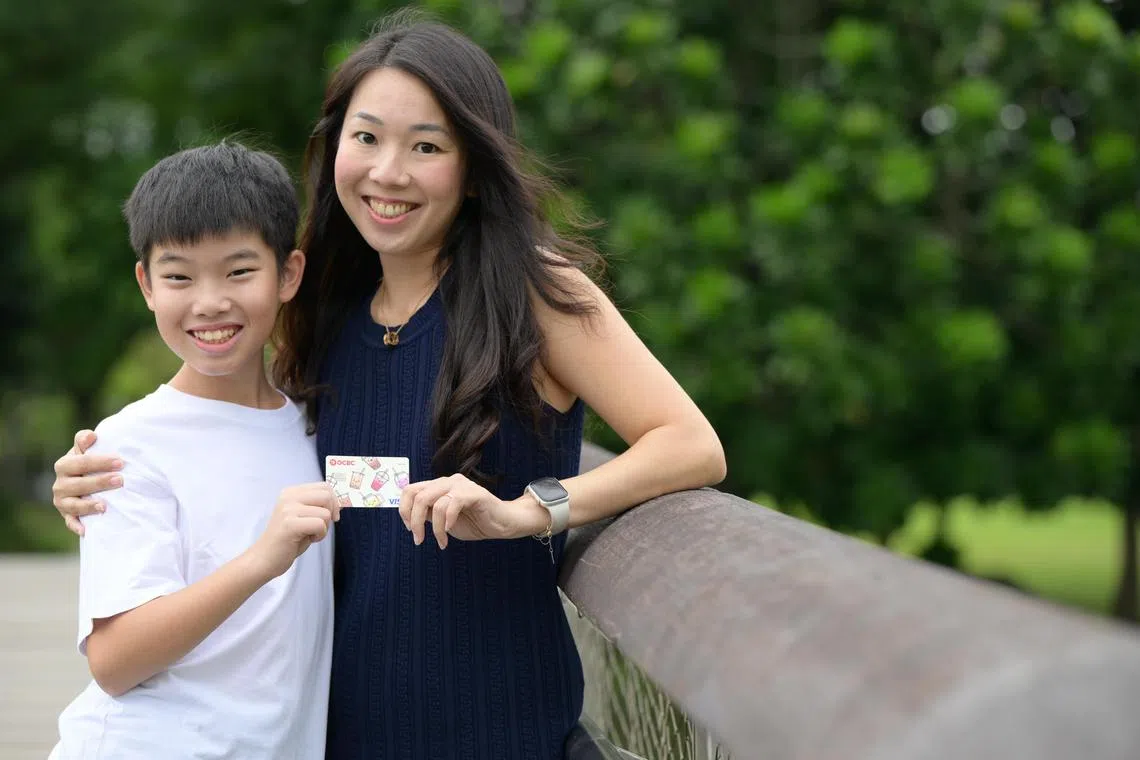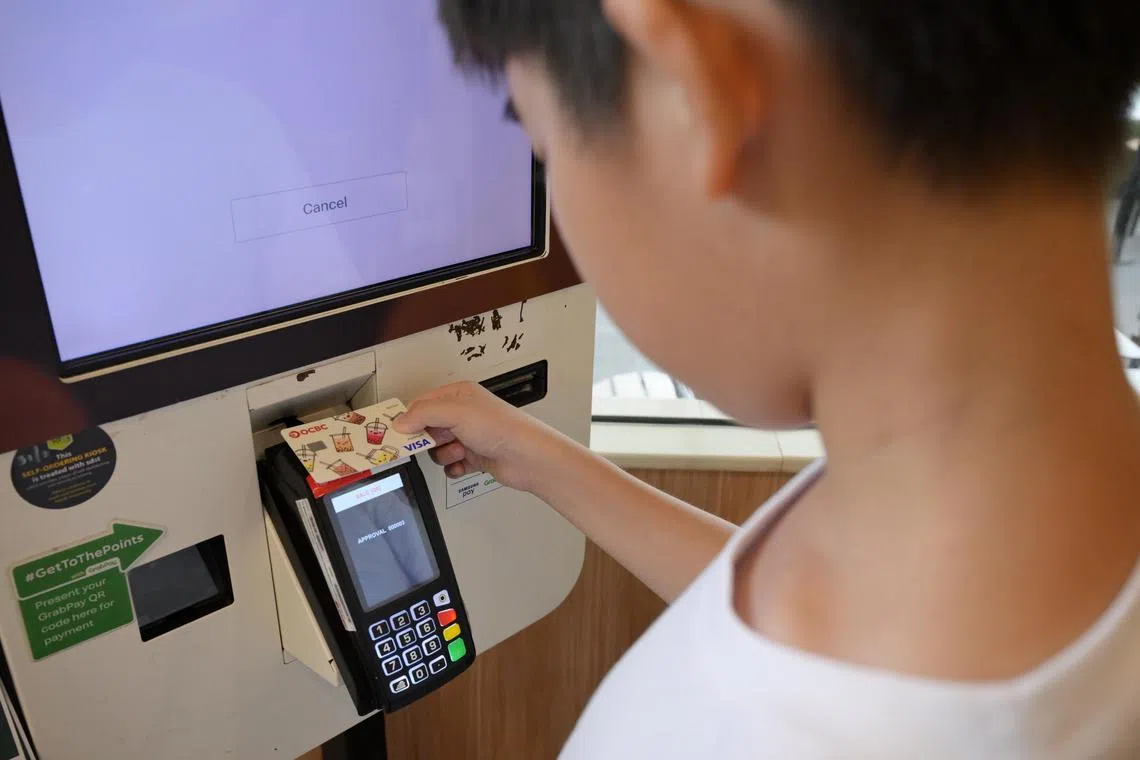A debit card for a 9-year-old? Some Singaporeans say yes
Sign up now: Get ST's newsletters delivered to your inbox

Ms Jeaneve Wee and her son, 11-year-old Jayden Hor, with his OCBC MyOwn debit card, which caters to those aged seven to 15.
ST PHOTO: NG SOR LUAN
SINGAPORE - When her eldest child turned 10, Ms Jeaneve Wee started lending him her debit card whenever he went out for meals with friends.
Her son, 11-year-old Jayden Hor, likes burgers at popular fast-food joints such as Shake Shack and McDonald’s.
Ms Wee, a marketing manager at F&N Foods, saw that most of Singapore’s fast-food outlets now operate self-serve kiosks, which accept payments digitally. She handed over her card, hoping her son would learn to order food independently.
“The children have evolving needs,” said Ms Wee, 44. “From the time they start primary school, they should be learning how to buy their own food.”
So when OCBC Bank rolled out the MyOwn account
She valued the fact that parents get an instant push notification from their OCBC banking app whenever their child makes a purchase using the MyOwn debit card. This allows them to know when their children are using their money and what they are spending it on.
Another perk Ms Wee appreciates is the ability to set spending limits across various payment mediums. For Jayden, she sets a daily card limit of $80, a PayNow limit of $80 and an ATM withdrawal limit of $50.
“It’s customised – it’s not one limit across all,” she said.
Ms Wee is not alone – more than 10,000 MyOwn accounts were opened within the first month of its launch, said Ms Tan Siew Lee, the head of group wealth management at OCBC.
Those aged 12 to 14 made up half of all new users, she added in reply to queries on Dec 16.
At the launch on Oct 20, OCBC said it planned to attract 100,000 account sign-ups within a year.
Ease of disseminating pocket money
For busy parents, the MyOwn debit card offers them the ability to dole out pocket money digitally to their young children.
Ms Michelle Wan, a 39-year-old entrepreneur who runs private education businesses, can now instantly give her nine-year-old daughter Desirae Chan her allowance. With her new debit card, Desirae can buy food by herself.
Ms Wan said: “Even if I’m not home, I don’t have to worry, like, ‘Oh no, I have to rush home to buy lunch for her.’”
The MyOwn account has also made it easier for Ms Wee to give her children’s pocket money – which she used to distribute in cash.
She used to get small change for Jayden’s daily recess allowance of $3 by exchanging larger notes with her aunt, who owns a minimart. Now, she just has to click a button.

Jayden Hor using his OCBC MyOwn debit card to buy a drink at the McDonald’s outlet in Bishan-Ang Mo Kio Park.
ST PHOTO: NG SOR LUAN
A tool to teach financial literacy – budgeting, digital payment technologies
Some finance experts, such as Ms Chuin Ting Weber, chief executive and chief investment officer of MoneyOwl, argue that debit cards alone may be insufficient to engender prudent spending habits in youth,
Both Ms Wee and Ms Wan, however, have found the debit card – and other features of the MyOwn account – to be a useful tool for teaching their children to spend wisely and responsibly.
Ms Wee said allowing children to have unfettered access to their bank balance via their bank app has better informed their spending habits.
She said: “When I had a joint account with the children in the past, it was very hard for them to see how much money they had in the bank. They weren’t incentivised to see how much money they had been saving, but now they can.”
For Ms Wan, she doles out Desirae’s allowance weekly, and helps her transfer the remainder to a savings account at the end of the week.
When asked how much of her allowance she saves, Desirae said: “20 per cent.”
But to some, cash is still king
However, for some Singaporeans, such as Ms Helaine Wang, cash remains king.
The 36-year-old laboratory manager at a medical technology firm is the mother of a set of seven-year-old twins, who enrolled in Fairfield Methodist School (Primary) in 2024.
Though she is not opposed to the idea of a debit card for her children, Ms Wang said it is not on the cards for now.
“We still think that they need to learn basic money counting with physical cash, and tapping away with a debit card doesn’t really teach them to control their expenditure,” said Ms Wang.
At their age, her children also do not have mobile phones, and are thus unable to track their expenses with the OCBC app.
Ms Wang added: “Also, I think their school doesn’t have the option of using a debit card for payment yet, so there’s really not much opportunity for them to use it now.”



